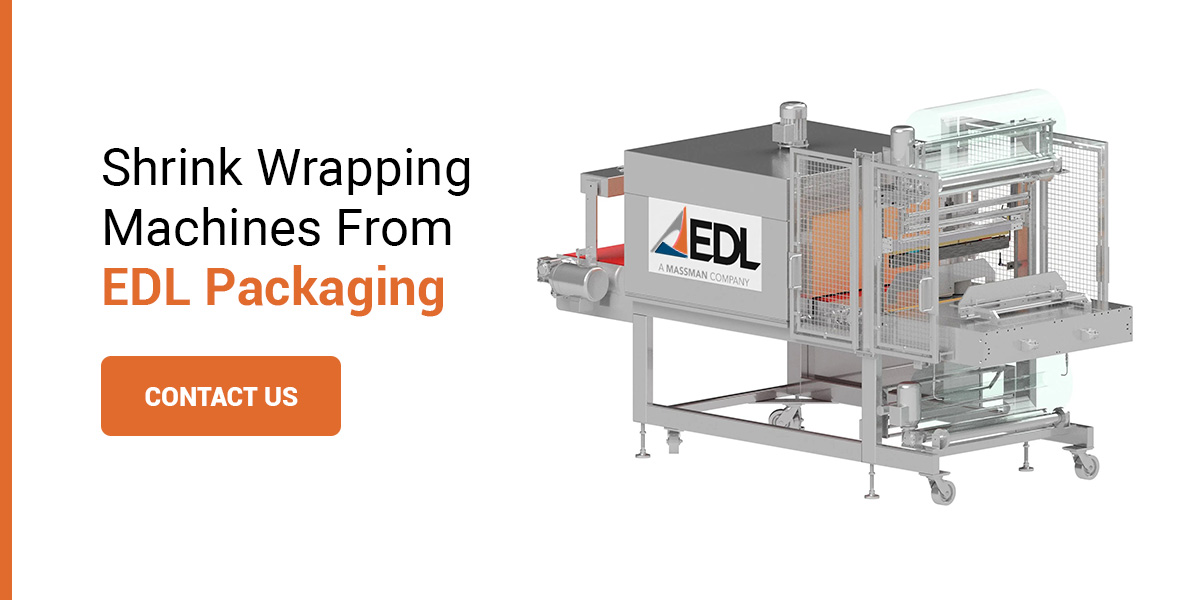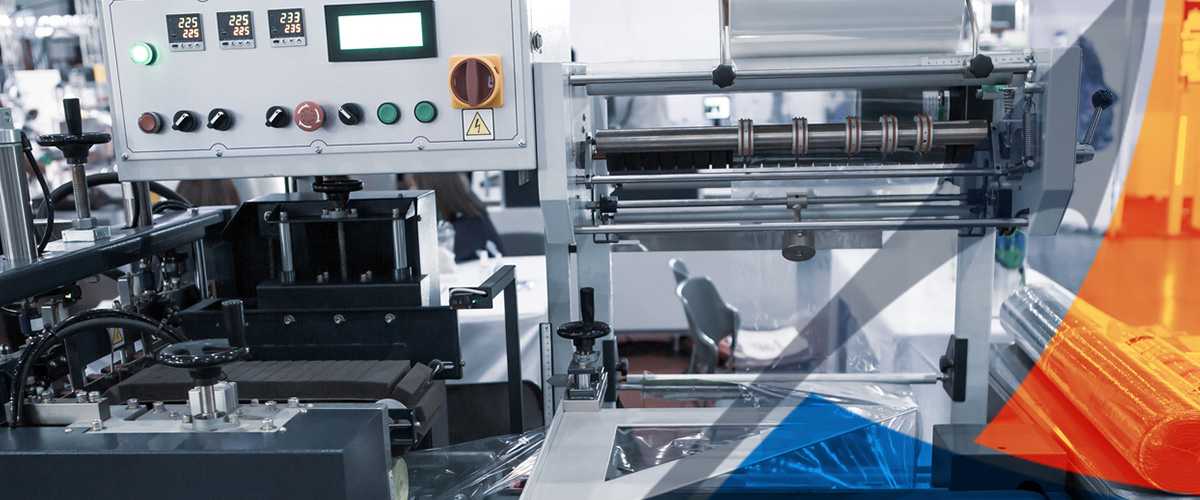06 February 2023 //
Every packaging line is unique, so the right shrink wrapping solution differs for each operation. Many businesses look for qualities like consistency and speed, but you’ll also need to consider how your shrink wrap machine affects safety and labor demands and how it integrates with the rest of your line. Semi-automatic and fully automatic shrink wrapping machines come in different styles that tend to fit certain applications better than others. Let’s explore the difference between semi-automatic and automatic shrink wrap machines.
Semi-Automatic Shrink Wrap Machines
A semi-automatic shrink wrapper accomplishes some parts of the wrapping cycle while still requiring operator intervention. The operator typically places loads on the wrapper and starts the wrapping cycle. Then, the wrapper takes over and wraps the product. Another operator will remove the newly packaged item from the machine. These semi-auto shrink wrap machines work well for reduced throughput rates. Depending on the product and the operator, semi-automatic shrink wrap machines have throughput rates of up to 5-8 packs per minute.
Generally speaking, a semi-automatic shrink wrapper offers a safe way to unitize loads and meet the shipping demands of your partners. Other benefits of semi-automatic shrink wrap machines include:
- Affordability: A semi-automatic shrink wrapper is typically much more affordable than an automatic machine. It can be a better entry-level solution or a good choice if you need multiple machines on a budget.
- Flexibility: You can often use a semi-auto shrink wrap machine in many ways. You might mount it on casters to move it around to different parts of the floor or the packaging line or reconfigure it for a new product. If you package multiple types of products and change your packaging line often, a semi-auto shrink wrapper can add flexibility to your operation.
- Ease of maintenance: Automatic machines are more complex. Semi-automatic equipment can be easier to maintain and troubleshoot.
- Easy integration: Semi-automatic shrink wrappers are very versatile and can be integrated into your existing production lines easily.
Some items to consider when choosing semi-automatic shrink wrap machines are:
- Higher labor costs: Since these machines require operator intervention, they have higher labor demands than automatic shrink wrappers.
- Lower throughputs: Semi-automatic shrink wrapping equipment is usually slower, so it can be less efficient or lead to bottlenecks, particularly during peak times. This limitation makes semi-automatic shrink wrappers best suited for reduced throughput operations.
Semi-automatic equipment can come in a few different styles. To avoid delays or high labor costs, you’ll need to find the one that fits your packaging line best. Some machines have modular designs or additional features that add some level of automation.
Fully Automatic Shrink Wrap Machines
Fully automatic shrink wrap machines run products through without the help of hand loading from an operator. They may even be able to start the cycle on their own. Typically, a load arrives at the machine on a conveyor belt. The machine assesses the width and height of the load. Then, it wraps the product based on pre-set parameters. The package moves along, and the shrink wrapper is ready to receive and wrap the next product.
A completely automated shrink wrap machine can work much faster speeds than semi-automatic machines. A continuous inline system, for instance, can accommodate 10-45 packs per minute.
The primary advantages of a fully automatic shrink wrap machine include:
- Efficient labor usage: By limiting the need for operator involvement, auto shrink wrap machines can reduce labor demands, allowing employees to focus on other activities during the wrap cycle.
- Less material waste: Automatic shrink wrappers tend to offer more efficient use of film. They can wrap the package tightly the first time according to specific settings without human error.
- High throughputs: With greater speed, fully automatic shrink wrappers can meet higher production demands and better avoid bottlenecks. For high-volume operations, automatic tools are very beneficial.
- Safety: Eliminating operator involvement can help improve safety by keeping employees away from the entire wrapping process.
Below are some things to consider when choosing an auto shrink wrappers:
- Higher costs: These machines are more expensive than their semi-automatic counterparts, so they’re typically reserved for larger operations.
- Placement options: Automatic shrink wrappers are mostly stationary and cannot be moved to different parts of the packaging line.
Like semi-automatic shrink wrappers, fully automatic machines come in different styles. A continuous motion sealer or single roll wrapper, for instance, is compact and good for lines that are constantly running. While traditional side feed or inline automatic will accommodate intermittent products without operator intervention.
Choosing the Right Shrink Wrap Machine
Both semi-automatic and fully automatic shrink wrap machines can help you protect products during distribution and meet product requirements through secondary packaging processes. The best one for your packaging line depends on your needs and configuration.
It can be tempting to focus on speed, but it’s important to remember that speed is just one element of the bigger picture. You have an average output of loads per day, but that output doesn’t reflect peak speeds during busy periods. If your shrink wrapper can’t accommodate that peak speed, you’ll likely run into bottlenecks. These delays can slow you down and reduce the efficiency of your staffing.
Other considerations include your capacity for additional labor or the need for additional safety. If, for example, you’re dealing with safety issues, an automatic solution might help you reach your goals more effectively. The right shrink wrapper for your business depends on which one can best optimize processes.
Large production runs with one type of product typically benefit from automatic shrink wrapping machines. They’re also a good choice if you have precise packaging requirements and need repeatability. Auto machines are typically more cost-effective if your packaging includes multiple functions, like erecting a tray and placing products in a tray before wrapping.
Semi-automatic shrink wrapping machines are usually best for those working with multiple products in diverse configurations since they offer more flexibility. You may also want a semi-automatic machine if you use small or short runs, need to feed multiple lines into one machine or want to keep costs as low as possible.

Shrink Wrapping Machines From EDL Packaging
At EDL Packaging, we specialize in packaging solutions designed for your unique needs. Our extensive line of shrink wrappers can work alongside other packaging demands, like tray forming and bundling, while fitting seamlessly into your workflow. Whether you know exactly what you want or you’re not sure what’s best for your operation, our knowledgeable team is ready to help.
Reach out to request a consultation and start improving your packaging line today.

